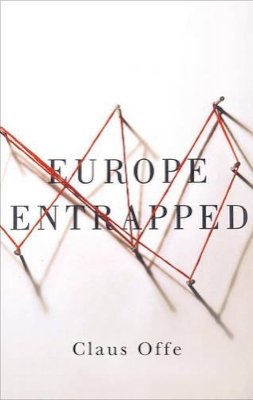
Today Europe finds itself in a crisis that casts a dark shadow over an entire generation. The seriousness of the crisis stems from one core political contradiction at the heart of the European project: namely, that what urgently needs to be done is also extremely unpopular and therefore virtually impossible to do democratically. Num Pages: 104 pages. BIC Classification: 1QFE; JPSN2; KCP. Category: (P) Professional & Vocational. Dimension: 225 x 176 x 17. Weight in Grams: 310. Today Europe finds itself in a crisis that casts a dark shadow over an entire generation. The seriousness of the crisis stems from one core political contradiction at the heart of the European project: namely, that what urgently needs to be done is also extremely unpopular and therefore virtually impossible to do democratically. What must be done - and almost everyone agrees in principle on the measures that would be needed to deal with the financial crisis - cannot be sold to the voting public of the core member states, which so far have been less affected by the crisis than those on the periphery, nor can the conditions that core members try to impose be easily sold to voters in the deficit countries. The European Union is therefore becoming increasingly disunited, with deepening divides between the German-dominated ‘core’ and the southern ‘periphery’, between the winners and the losers of the common currency, between the advocates of greater integration and the anti-Europeans, between the technocrats and the populists. Europe finds itself trapped by the deepening divisions that are opening up across the Continent, obstructing its ability to deal with a crisis that has already caused massive social suffering in the countries of the European periphery and is threatening to derail the very project of the European Union. In this short book, Claus Offe brings into sharp focus the central political problem that lies at the heart of the EU and shackles its ability to deal with the most serious crisis of its short history.
Product Details
About Claus Offe
Reviews for Europe Entrapped
of European society, in other words
to modify that framing in ways that open the door to a more constructive policy response. Offe's careful analysis deserves a wide audience. If it receives one, Europe will be a better place." Barry Eichengreen, University of California, Berkeley "At the core of this book is the proposition that, though the Euro was a mistake, its undoing would be a greater mistake. Around this insight, Offe describes the logic of the economic, institutional, political and cultural traps that have been sprung on European polities. The great merit of this book is that it poses the fundamental question implicit in any attempt to escape such traps: who is to be the agent of change? No one reading this book will think that this question has an easy answer; they will realise that an answer is desperately called for." Albert Weale, University College London ‘Europe Entrapped brilliantly summarizes the huge complexity of the EU that hinders its effective crisis management, and comes with a passionate call for more material solidarity among EU citizens... Offe contributes a most welcome counterweight to all the short and simple arguments attributing blame for the crisis to a small group of people, persons, or institutions. For everyone interested in the Euro crisis and annoyed or confused by the barrage of media coverage on it, I highly recommend this book.’ International Studies Review ‘Offe provides a lucid explanation of the Eurozone crisis and how Europeans should reform their institutions. While assembling the intellectual tools to dissect this predicament, he paints a full picture of the challenges facing welfare states under globalization… The silver lining of this book is that it is partisan in the best possible way: provocative but not distorting, critical but not irascible. Most of all: its political rallying cry to citizens, namely that the Europe we have is flawed and the one we stand to gain is worth fighting for, is both urgent and true.’ Constellations ‘This is an important read for any Europhile who thinks that anything economically or socially rational must also be politically realistic.’ Times Higher Education
